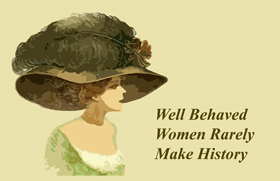A few weeks ago my partner and I attended a few marriage classes we are required to take in order to get married in the Catholic Church. One class focused on sex and touched on natural family planning. I know what you are thinking, a couple who has 10 children practice natural family planning because they pay no attention, do not use any birth control and let themselves get pregnant. Am I right? Or maybe something along those lines? I guess I also thought this myself before I took the class. It turns out its not the real case.
The Catholic Church supports the use of natural family planning which is used to avoid pregnancy and to get pregnant. The most common method and most effective method is Sympto-Thermal. In this method you chart the primary signs of fertility which are: cervical mucus, basal body temperature, and cervical changes as well as secondary signs. Doing this every morning at the same time will give you data, the real numbers to show you your cycle and which exact day you move from being not fertile to fertile- when you release an egg. The huge indicator is when your temperature increases and decreases. You do not have to have a "regular cycle" in order to chart and make this method work. It allows you to work with your own cycle and body.
This method is also known as Fertility Awareness to physicians, however it is not looked at as a good method to avoid pregnancy alone. In order for this to work you must abstain from sex during the fertile period and be very strict with it. According to a report in Europe's Human Reproduction Today journal there is a study that was done with results published in 2007 on the effectiveness of natural family planning. The rate of unplanned pregnancies was around 0.4% per year meaning out of the 900 women who took part of study, 1.8 per 100 became pregnant. For something to be rated just as effective as the hormonal birth control pill, there should be less than one pregnancy per 100 women in a year.The rates in the study translated to one pregnancy per 250 women per year, which then in this study makes natural family planning just as effective. I found this piece of information pretty awesome to say the least. There are certain factors going into it, like only having sex when your temperature changes correctly to avoid pregnancy and the period of abstinence- but that can be true of the pill. You have to take it the same time every day, and it doesn't work well when you are super sick; there are still small risks of getting pregnant. However, it must be noted that this method is not easy. You must be very studious and stay on task with charting everyday because your cycle can change from month to month. If you become lazy, the effectiveness goes out the window.I think this is a misunderstood method and can be a great option for some couples.
My next thought after learning all the scientific data about this method was, is this a feminist method to go about planning a family and avoiding pregnancy? You are working with your body, listening to it. It tells you exactly when you can get pregnant and when it's less of a risk. You are not ignoring your body and letting a pill control your cycle. Being one with your body to me is very feminist. You also respect your body in a sense that you trust it to do what it was made to do, let you know what is going on. I feel you take control of your body and reproductive system in a very intimate way that you cannot do otherwise. Do you think it is a feminist method?



